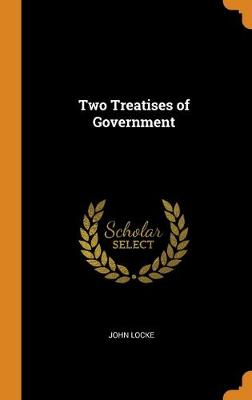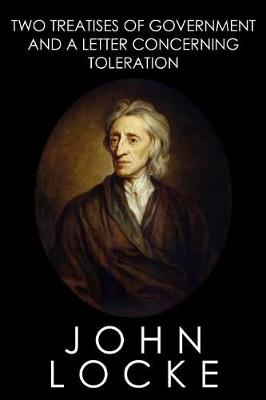Rethinking the Western Tradition
3 total works
John Locke laid the groundwork of modern liberalism. He argued that political societies exist to defend the lives, liberties and properties of their citizens and that no government has any authority except by the consent of the people. When rulers became tyrants and act against the common good, then the people have the right of revolution against them. Writing against the backdrop of Charles II's savage purge of the Whig movement, Locke set out to attack the fabric of the divine right of rulers. The rights of property- owners, of Native Americans, and of women and children, the need for economic improvement, the separation of commands, and the nature and limits of consent--these are all topics within Locke's compass and make this book the subject of intense debate.
This is the first modernized edition of the Two Treatises based on Locke's own corrected text as he left it for posterity at his death.
It includes an introduction, chronology of Locke's life and times, extensive glossary and keyword index.
Two Treatises of Government and A Letter Concerning Toleration
by John Locke
Published 10 November 2003
Two of Locke's most mature and influential political writings and three brilliant interpretive essays combined in an outstanding volume
"The new standard edition of Locke for students of political theory. Dunn, Grant, and Shapiro combine authoritative historical scholarship and contemporary political theory to give us Locke for our time."-Elisabeth H. Ellis, Texas A&M University
Among the most influential writings in the history of Western political thought, John Locke's Two Treatises of Government and A Letter Concerning Toleration remainvital to political debates today, more than three centuries after they were written. The complete texts appear in this volume, accompanied by interpretive essays by three prominent Locke scholars. Ian Shapiro's introduction places Locke's political writings in historical and biographical context. John Dunn explores both the intellectual context in which Locke wrote the Two Treatises of Government and A Letter Concerning Toleration andthe major interpretive controversies surrounding their meaning. Ruth Grant offers a comprehensive discussion of Locke's views on women and the family, and Shapiro contributes an essay on the democratic elements of Locke's political theory. Taken together, the texts and essays in this volume offer invaluable insights into the history of ideas and the enduring influence of Locke's political thought.
"The new standard edition of Locke for students of political theory. Dunn, Grant, and Shapiro combine authoritative historical scholarship and contemporary political theory to give us Locke for our time."-Elisabeth H. Ellis, Texas A&M University
Among the most influential writings in the history of Western political thought, John Locke's Two Treatises of Government and A Letter Concerning Toleration remainvital to political debates today, more than three centuries after they were written. The complete texts appear in this volume, accompanied by interpretive essays by three prominent Locke scholars. Ian Shapiro's introduction places Locke's political writings in historical and biographical context. John Dunn explores both the intellectual context in which Locke wrote the Two Treatises of Government and A Letter Concerning Toleration andthe major interpretive controversies surrounding their meaning. Ruth Grant offers a comprehensive discussion of Locke's views on women and the family, and Shapiro contributes an essay on the democratic elements of Locke's political theory. Taken together, the texts and essays in this volume offer invaluable insights into the history of ideas and the enduring influence of Locke's political thought.
Two Treatises of Government and a Letter Concerning Toleration. Rethinking the Western Tradition.
by John Locke
Published 1 January 2003


